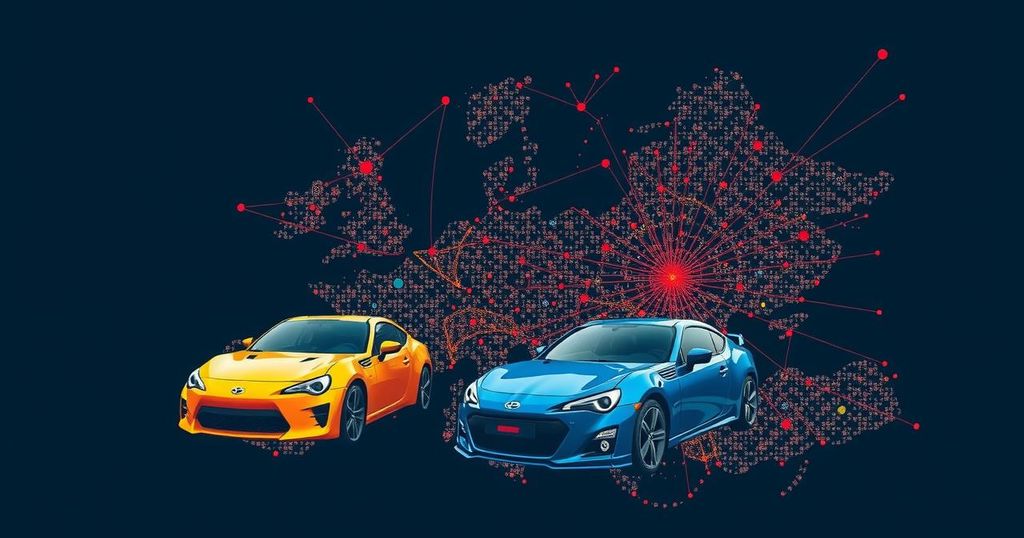The Emergence of Chinese Automakers: An Earthquake in the European Automotive Market

The arrival of Chinese auto manufacturers like BYD in Europe is seen as a disruptive force, with former Fiat-Chrysler Europe CEO Alfredo Altavilla likening it to a “complete earthquake” in the automotive sector. BYD’s rapid vehicle development pace, commitment to local manufacturing, and innovative corporate culture present substantial challenges to established European automakers, coupled with a widening interest in employment opportunities from industry professionals amid fears of job security.
The emergence of Chinese vehicles, particularly electric vehicles (EVs), in Europe signifies a profound transformation in the automotive market. Alfredo Altavilla, former Fiat-Chrysler Europe CEO and current advisor to BYD, has emphasized the significance of this shift, referring to it as a potential “complete earthquake” within the industry. His insights point to the exceptional speed of vehicle development and manufacturing processes employed by BYD, where new models can be created within just 18 months, a stark contrast to traditional manufacturers who typically require several years for similar tasks. In addition, Altavilla highlights the rigorous work ethic at BYD, stating that employees operate under the mantra “nothing is impossible,” which fosters innovation and creativity among engineers. BYD’s strategic approach to establishing itself as a European manufacturer, with local research and development alongside production, positions it differently from many other Chinese companies that aim to set up assembly plants in Europe while maintaining their origins. This localization strategy not only circumvents tariffs but also aligns with consumer preferences for local manufacturing. Altavilla notes that the growing interest in employment with BYD from professionals across various European manufacturers underscores the current fears within those companies regarding job security amid this rapidly changing landscape. Moreover, he reflects upon the observable market penetration of brands such as MG, which quickly garnered a four percent market share in Europe within two years, suggesting that existing European manufacturers are stagnating due to excessive strategic planning without actionable results, particularly among German automakers. In conclusion, the rise of Chinese car manufacturers like BYD in Europe presents substantial challenges for established automakers, driven by innovative practices and an adaptive approach to market needs.
The rapid expansion of Chinese electric vehicles (EVs) in the European automotive market is indicative of larger trends in global manufacturing and consumer preferences. As manufacturers like BYD set out to not only compete but establish themselves firmly within Europe, they bring new methodologies, accelerated development timelines, and an emphasis on local production that disrupts traditional European automotive strategies. The responses from industry veterans like Alfredo Altavilla provide insights into both the opportunities and threats posed by this influx of Chinese vehicles as they carve out their market share and approach in a historically European-dominated marketplace.
In summary, the growing influence of Chinese automotive manufacturers such as BYD in Europe is poised to drastically alter the competitive landscape of the industry. With agile development cycles, a commitment to local manufacturing, and an innovative mindset, these companies are set to challenge traditional automakers who may be hesitating in their strategic responses. The automotive sector in Europe must adapt quickly to these changes or risk losing significant market share to these emerging players.
Original Source: www.topgear.com




